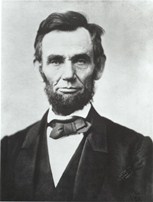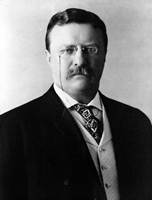I am a lifelong Democrat but most of my life I was not anti-Republican. I am a Liberal but I‘ve always understood Conservatism.
I believe that liberalism is necessary to move our conservative nature in the direction of progress.

I have as many friends on the right side of the aisle as on the left and they are all people whose company I enjoy. I spend a great deal of time trying to understand our differences for the purpose of finding common ground to resolve conflict. My goal has always been to create a more civil dialogue that could lead to positive changes.
One of the mistakes we all make is in believing that either side (right or left) is historically consistent.
Thomas Jefferson was a Democrat-Republican. He and Madison formed the party to oppose the Federalists, whose policies were in the interests of wealth, and to form trade agreements with Britain and to create a National Bank. By today’s definition, Jefferson more closely resembles a Democrat but the Democrat-Republicans favored states’ rights and strict adherence to the Constitution and eventually became known as Republicans.
From this fragmentation, a new party focusing on individual freedom, led by Andrew Jackson, emerged. Known only as Democrats, it must be noted that the “freedom” Jackson believed in only extended to white males, but this was the “majority” opinion of the day. Disenfranchised Democrats along with the dwindling Federalists, joined what would become the Republican Party and swayed the party toward many Federalist values.
The line is already blurred and we’re only up to 1828…..
 Once upon a time, it was not unheard of to be a conservative Democrat or a liberal Republican.
Once upon a time, it was not unheard of to be a conservative Democrat or a liberal Republican.
Lincoln was a Republican yet his socio-political positions were “liberal” while his devout nationalism would label him “conservative.”
Teddy Roosevelt, a Republican, was a champion in many areas that are now considered the domain of the left (the environment, labor rights, regulations on big business). The Republicans, in fact, turned their back on him and he formed the Progressive Party to run again.

Why is it today that we believe there is historical consistency within party values and why do we define each other with contrary terms rather than look for common threads to build new alliances?
Because it’s easier to believe that we each naturally follow the beacon of unalienable rights that extend back to the spark of creation. It’s easier to follow than it is to lead.
I believe that every human being carries within them a conflicted polarity; a duality where we struggle between light and dark; a fight in our souls between fear and faith. We choose to, or we are conditioned to, conform our guiding principles to follow one direction over the other so that we can give that conflict rest.
At the core of conservatism is wisely measured caution, but also fear. Fear of losing that which has protected us; that which has given life and sustained us (the status quo). It is perfectly rational to have that fear, we all do, but fear can also make us selfish.
Liberals are scared too, but at the core of liberalism is a critical evaluation of our frailty; it is a position to counter the natural forces that will nurture our fears (which can lead to selfishness…and from selfishness the soil becomes more fertile for intolerance, bigotry and greed to grow).
Liberals view our country’s greatness, not by the great system of accumulation that has been created, but by the compassion that we demand from that system.
At the risk of betraying my own premise by reducing ideologies to easy sound bites: Modern Republicans believe that what is good for them as individuals is best for the whole, while Democrats believe that what is good for the whole will create better opportunities for more individuals.
What’s really funny is that the genesis of each party came from almost reversed positions. Jefferson was a secular humanist whose own political philosophy started from an agrarian influence, and he was the original Republican…or Democrat depending on which party’s website you’re on.
Could there be a synergy of common goals that lead to a more civil dialogue so that the experience of our disagreements would be more….agreeable?
Unfortunately I don’t think we will agree on that